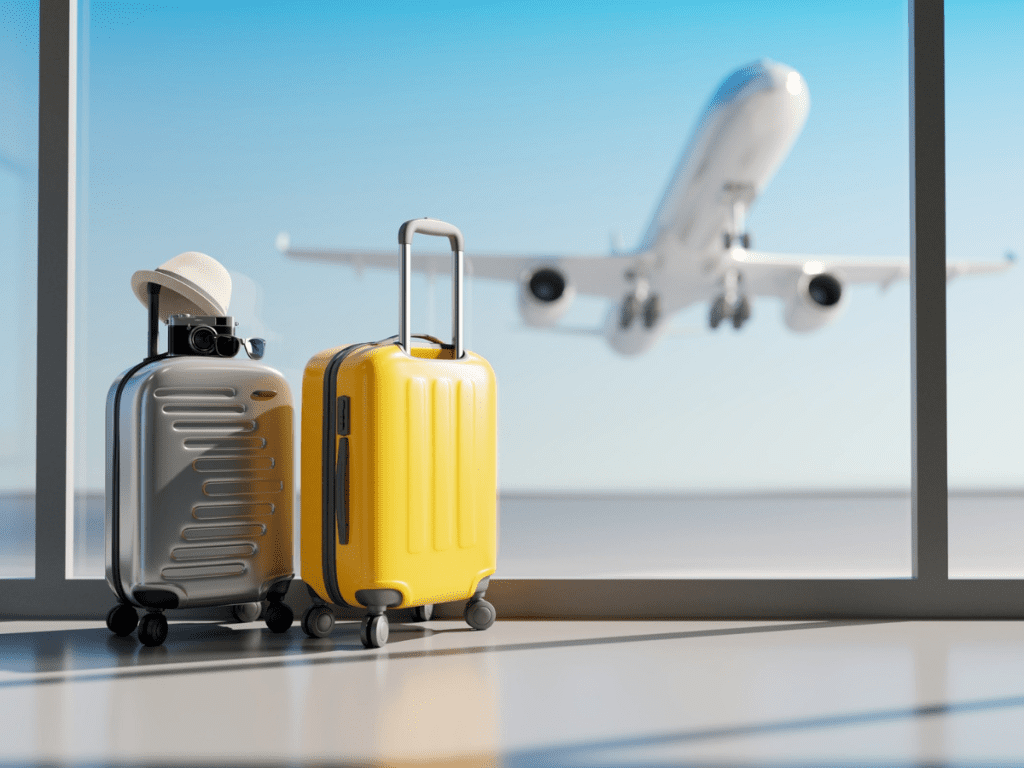Introduction
Travel insurance is one of those things that travelers often overlook or dismiss, assuming it’s unnecessary or redundant. However, when emergencies strike, it can become one of the most essential components of a traveler’s journey. While the idea of mishaps and accidents abroad can be unsettling, having the right travel insurance coverage can make all the difference. In this article, we will look at real-life stories of travelers who have had to rely on their travel insurance in emergencies, how it helped them, and the important lessons we can learn from these experiences.
1. The Case of the Missing Luggage in Barcelona
Sophie was an avid traveler, planning a month-long backpacking trip through Europe. She had everything meticulously planned – flights, accommodations, and activities. What she didn’t plan for, however, was her luggage being lost upon arrival in Barcelona. After a long flight, Sophie’s bag failed to appear on the conveyor belt. As hours passed, she was told by the airline that her luggage had likely been misplaced and would be sent to her hotel the next day.
While Sophie was frustrated, she remembered that she had purchased comprehensive travel insurance that included coverage for lost luggage. She immediately contacted her insurance provider and filed a claim. The insurance company informed her that they would reimburse her for the cost of purchasing essential items like clothing, toiletries, and other personal items she needed until her luggage arrived. Sophie was able to buy new clothes and toiletries, and her insurance reimbursed her up to a set limit.
What We Can Learn:
- Always opt for comprehensive coverage: Travel insurance is not just about emergency medical coverage. It can also protect you in situations like lost luggage. Ensure your policy includes coverage for baggage loss, delays, and theft.
- Document everything: Sophie took pictures of the missing luggage claim ticket and kept receipts for the items she bought. This helped her in the claims process.
- Contact the insurance company early: The sooner you reach out to your insurer, the quicker they can process your claim and assist you in finding solutions.
2. Medical Emergency in Thailand: The Unexpected Heart Attack
John, a 52-year-old fitness enthusiast, was traveling through Southeast Asia when disaster struck. While in Thailand, he suffered a sudden heart attack while out on a morning jog. John was immediately rushed to a hospital, where doctors determined that he required emergency surgery.
John had purchased a travel insurance policy that included medical coverage, so he quickly reached out to his insurance provider. His insurance covered the costs of his surgery and hospital stay, which would have otherwise amounted to thousands of dollars. Additionally, because John was traveling alone, his insurance policy included coverage for a family member to fly to Thailand to be with him during his recovery.
What We Can Learn:
- Don’t assume your health will stay perfect: Even if you are healthy and active, you can still face health emergencies, particularly when traveling abroad. Travel insurance with emergency medical coverage is crucial for peace of mind.
- Ensure your coverage includes medical evacuation: In severe cases, like John’s, evacuation to your home country or to a hospital that can provide specialized care may be necessary. Always verify that your travel insurance offers this kind of coverage.
- Check the policy’s exclusions: Some insurance policies might have exclusions related to pre-existing medical conditions. John was fortunate that his policy covered the heart attack, but it’s essential to know the limitations of your plan.
3. Natural Disaster Strikes: Typhoon in the Philippines
Maggie and her family had planned a tropical vacation to the Philippines. Their dream vacation quickly turned into a nightmare when Typhoon Kammuri struck the region, causing widespread damage. Flights were canceled, resorts were destroyed, and the family found themselves stuck in a dangerous situation with no clear path to safety.
Fortunately, Maggie had purchased travel insurance that included trip interruption and cancellation coverage. After being stranded for several days, she was able to file a claim for reimbursement of the expenses incurred due to the flight cancellations and the resort’s closure. The insurance company helped Maggie and her family book new flights back home and reimbursed her for additional expenses caused by the natural disaster.
What We Can Learn:
- Check if your insurance includes trip interruption and cancellation: If your trip is disrupted by unforeseen circumstances such as natural disasters, having this coverage ensures that you won’t be left with significant financial losses.
- Understand your evacuation options: Many travel insurance policies offer assistance in evacuation situations during natural disasters. Ensure that your policy covers such eventualities.
- Be prepared for delays: In cases of natural disasters or emergencies, expect significant delays and confusion. Stay calm and work with your insurance provider to secure alternative arrangements.
4. Car Accident in Italy: Medical and Legal Assistance
Olivia, a solo traveler, was driving in Italy when she was involved in a minor car accident. Although she wasn’t seriously injured, the car was severely damaged, and Olivia was left stranded in a foreign country with language barriers and no clear understanding of how to proceed. Luckily, Olivia had purchased travel insurance that provided 24/7 emergency assistance and legal support.
She contacted her insurer’s emergency hotline, and within hours, an English-speaking agent assisted her in navigating the situation. The insurance company arranged for her to get medical attention and provided legal assistance for dealing with the insurance claims of the other party involved in the accident. They also helped her secure a replacement vehicle, so she could continue her travels.
What We Can Learn:
- Choose an insurance policy with emergency assistance: Olivia’s situation could have become much more complicated without the 24/7 emergency assistance provided by her insurer. Having a reliable support system can be a lifesaver.
- Know your legal rights abroad: In a car accident or similar situation, knowing your rights and obligations is essential. Some travel insurance policies offer legal support in foreign countries, which can help you navigate local laws.
- Don’t hesitate to call for help: Even if the situation seems manageable, it’s crucial to reach out to your insurer. They have experience handling such issues and can help you avoid complications.
5. Lost Passport in Peru: Emergency Travel Assistance
Tom was on a backpacking trip through South America when he realized his passport was missing. He had lost it during a day trip in Peru and had no idea where it went. Being in a foreign country, he found himself at a loss for what to do next. After contacting the local embassy and going through the necessary procedures to file a report, Tom reached out to his travel insurance provider.
His insurance company quickly helped him get in touch with the local embassy and arranged for emergency travel assistance to help him obtain a temporary passport. Tom was able to continue his travels without major delays.
What We Can Learn:
- Travel insurance isn’t just for health: Many travel insurance policies offer coverage for situations like lost or stolen passports. This can be invaluable when you’re in a foreign country without essential travel documents.
- Keep a backup of your documents: Tom had a photocopy of his passport, which helped speed up the process of replacing it. Always carry backups of important documents in case of emergencies.
- Notify your insurer immediately: Prompt notification can help ensure that your insurer is able to assist you quickly in obtaining the necessary support.
6. Terrorist Attack in London: Coverage for Trauma and Medical Costs
Rachel was on vacation in London when a terrorist attack occurred near the location she was visiting. While she was not physically injured, the traumatic event caused significant emotional distress. She found herself dealing with post-traumatic stress symptoms and sought therapy and counseling sessions to cope with the experience.
Rachel’s travel insurance policy included coverage for mental health care resulting from traumatic events, which allowed her to access counseling services and mental health support during her recovery. The insurance company helped her cover the costs of therapy and counseling.
What We Can Learn:
- Check if your insurance includes coverage for mental health: While many travelers focus on physical health, coverage for mental health support after traumatic events is equally important. Check your policy’s inclusions and exclusions.
- Know that emergencies aren’t always physical: Emotional and psychological trauma can occur in response to events like terrorist attacks or accidents. Ensure your policy addresses these issues.
- Seek professional help early: If you experience trauma or stress after an emergency, don’t hesitate to contact a professional. Many insurers can cover therapy costs, which can greatly ease your recovery.
Conclusion: The Importance of Travel Insurance
Travel insurance can often be seen as an afterthought, something that many travelers don’t want to invest in until it’s too late. However, the stories shared here demonstrate the critical role that insurance plays in protecting travelers from unexpected emergencies, whether it’s a health issue, natural disaster, lost luggage, or even emotional distress. The peace of mind that comes with knowing you have financial and logistical support in case of emergencies is invaluable.
Before embarking on your next adventure, take the time to research and purchase travel insurance that covers a broad range of situations. From medical coverage to trip cancellations and emergency assistance, the right policy can save you time, money, and stress. And remember, while no one plans for emergencies, being prepared for them can make all the difference in ensuring that your travels remain a positive and life-enriching experience.

